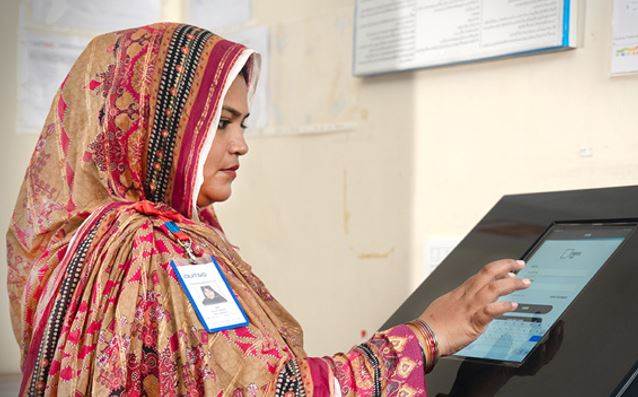Blockchain mapping ‘adds visibility’ to garment workers

Swedish start-up PaperTale’s “digital twin supply chain” software has been used to map the journey from farm to finished product for Sail Racing, a marine clothing brand.
The collaboration is highlighted as the primary case study in a white paper by consultancy Deloitte, as a guide to how companies could most effectively prepare for the European Commission’s upcoming Digital Product Passport (DPP) and other related legislation.
The PaperTale system for Sail Racing maps a network beginning with farmers in Australia, moving to garment workers in Pakistan and reaching consumers in Scandinavia, incorporating data collection using NFC tags and blockchain technology.
PaperTale founder Bilal Bhatti said: “By integrating the system into existing planning and management systems, factories and brands can gather and verify the flow of material and their social and environmental data in real-time. Data is added to a public blockchain so it is extremely hard to tamper with, further increasing trust. When a product is finalised, consumers can scan an NFC tag or QR-code to view the entire journey a product has travelled, which craftsmen were involved in the production, and if they have been paid fairly.”
Introducing the usually anonymous factory workers responsible for each individual garment to the person buying it is what sets PaperTale apart from other tracking systems, he added, as this level personalisation that will make a contribution to raising the debate on the true cost of textiles. “We need products and processes to be much more connected with people, especially in such a complex supply chain where a high percentage of the work is carried out by contract workers who are unregistered and often exploited,” he said.
“When the entire product journey is visible using real-time and verified data, higher trust is created all the way from factories to consumers. Our system makes it possible to start the dialogue on the cost of sustainability, paving the way to increase incentives that result in proper wages, contracts and workplace safety.”
The Deloitte white paper, ‘Adopting blockchain-based e-liability ESG reporting to comply with the upcoming CSRD regulation’, confirmed data enabled the development of a DPP and met various regulatory reporting needs. Lead author Henrik Knak, a supply chain specialist and director at Deloitte. “As the industry evolves, there is a risk of DPPs becoming mere compliance reports, but the project emphasises the importance of focusing on extending product lifespans, improving decision-making based on impacts and promoting circularity. The Sail Racing case illustrates how a holistic approach can extend beyond DPPs to ensure robust traceability, accountability and social and governance responsibility across supply chains.”











